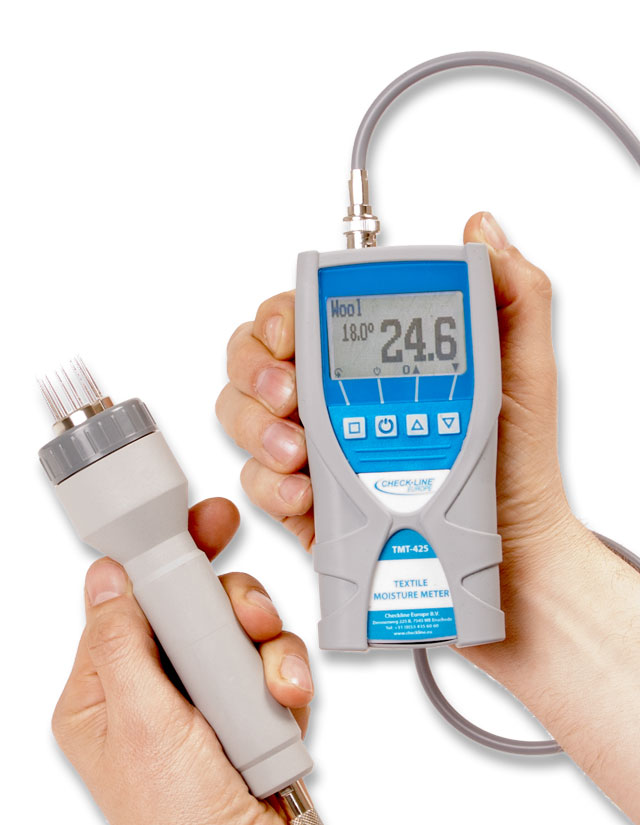Moisture Meter Purchasing Guide: What to Search for in High-Quality Instruments
Moisture Meter Purchasing Guide: What to Search for in High-Quality Instruments
Blog Article
Explore the World of Moisture Meters: Whatever You Need to Know
In the world of moisture meters exists a world of precision and practicality that typically goes undetected. These devices, while relatively straightforward, hold a wealth of info that can significantly affect various industries and applications. Recognizing how moisture meters run, the different kinds readily available, and their diverse usages can clarify their value in making sure quality and efficiency. By checking out the details of moisture meters, one can reveal a beneficial tool that transcends mere measurement, supplying insights that can make a substantial distinction in various areas.
How Moisture Meters Work
Moisture meters operate by measuring the electric conductivity or capacitance of materials to figure out the dampness web content present. These meters are very useful tools throughout various industries, consisting of construction, farming, and woodworking. By using various techniques such as pinless or pin-type modern technology, dampness meters give exact analyses that help experts make educated decisions.
Pin-type moisture meters work by placing the sharp pins right into the material being checked. On the various other hand, pinless dampness meters utilize electromagnetic signals to scan a larger location without causing any damages to the product's surface area.
Despite the approach utilized, moisture meters play a critical duty in protecting against issues such as mold development, architectural damages, or item issues brought on by excess moisture. Comprehending just how these meters job is necessary for ensuring the top quality and integrity of materials in various applications.
Kinds of Moisture Meters
Given the crucial function dampness meters play in different markets, it is vital to comprehend the different kinds available to specialists for precisely assessing dampness degrees - Moisture Meter. There are mostly 2 main types of moisture meters: pin-type and pinless moisture meters

On the various other hand, pinless wetness meters utilize electromagnetic sensor plates to check a bigger location of the product without triggering any kind of damage. This type appropriates for promptly scanning huge areas and is generally used for flooring, walls, and ceilings. Pinless meters are practical for taking analyses on finished surfaces without leaving any kind of noticeable marks.
Both sorts of moisture meters have their advantages and are chosen based upon the specific requirements of the job at hand. Recognizing the distinctions in between these types is important for professionals to make accurate moisture assessments.
Applications Across Industries
Construction experts count on dampness meters to assess the wetness degrees in structure materials like timber, drywall, and concrete, which is essential for maintaining architectural honesty and avoiding concerns like rot or mold. The floor covering industry utilizes wetness meters to gauge the wetness content in subfloors prior to mounting numerous floor coverings, protecting against expensive problems due to excess moisture. In the food sector, moisture meters are made use of to keep an eye on and control moisture levels in products such as grains, nuts, and dried out fruits to preserve quality and high quality.
Tips for Making Use Of Wetness Meters
When measuring the dampness material in numerous products,Use the dampness meter's calibration setups to ensure precise readings. Calibration is important for the proper functioning of a moisture meter. Before each use, it is suggested to check and change the calibration setups according to the specific product being evaluated. In addition, see to it the meter is readied to the right wetness variety for the material you are determining to obtain the most exact outcomes.
When using a pin-type wetness meter, put the pins to the appropriate deepness advised for the product being checked. This makes sure that the moisture readings are extracted from the right deepness within the product, offering a more exact representation of its moisture web content. For pinless wetness meters, remember to keep appropriate contact with the product's surface to obtain reliable analyses.
Consistently inspect and change the batteries in your moisture meter to avoid unreliable analyses because of low power. When not in usage to prolong its life-span and preserve its precision, Store the meter in a completely dry and safe location. By adhering to these suggestions, you can maximize the performance of your dampness meter and acquire accurate wetness web content measurements across different products.
Upkeep and Calibration
To ensure the accuracy of wetness web content measurements, normal upkeep and calibration of the moisture meter are vital actions in its correct functioning. Maintenance involves keeping the wetness meter tidy and cost-free from debris that could impact its readings. It is very important to view it now adhere to the my review here supplier's standards for cleansing to prevent damage to the device. Additionally, normal calibration is necessary to verify the accuracy of the readings. Calibration adjusts the moisture meter to ensure that it provides consistent and dependable results.
Calibration must be carried out occasionally, particularly if the dampness meter is utilized regularly or in important applications where precise dimensions are required. By keeping and calibrating the dampness meter frequently, users can rely on the accuracy of the wetness web content measurements acquired.
Verdict

To conclude, dampness meters play an essential function in numerous sectors by accurately determining the wetness web content of products. Recognizing how these gadgets function, the various kinds available, and proper maintenance and calibration are necessary for getting reliable results. Whether in construction, manufacturing, or agriculture, using dampness meters aids make sure quality assurance and performance in procedures.

In conclusion, dampness meters play a critical function in various industries by properly determining the moisture web content of products.
Report this page